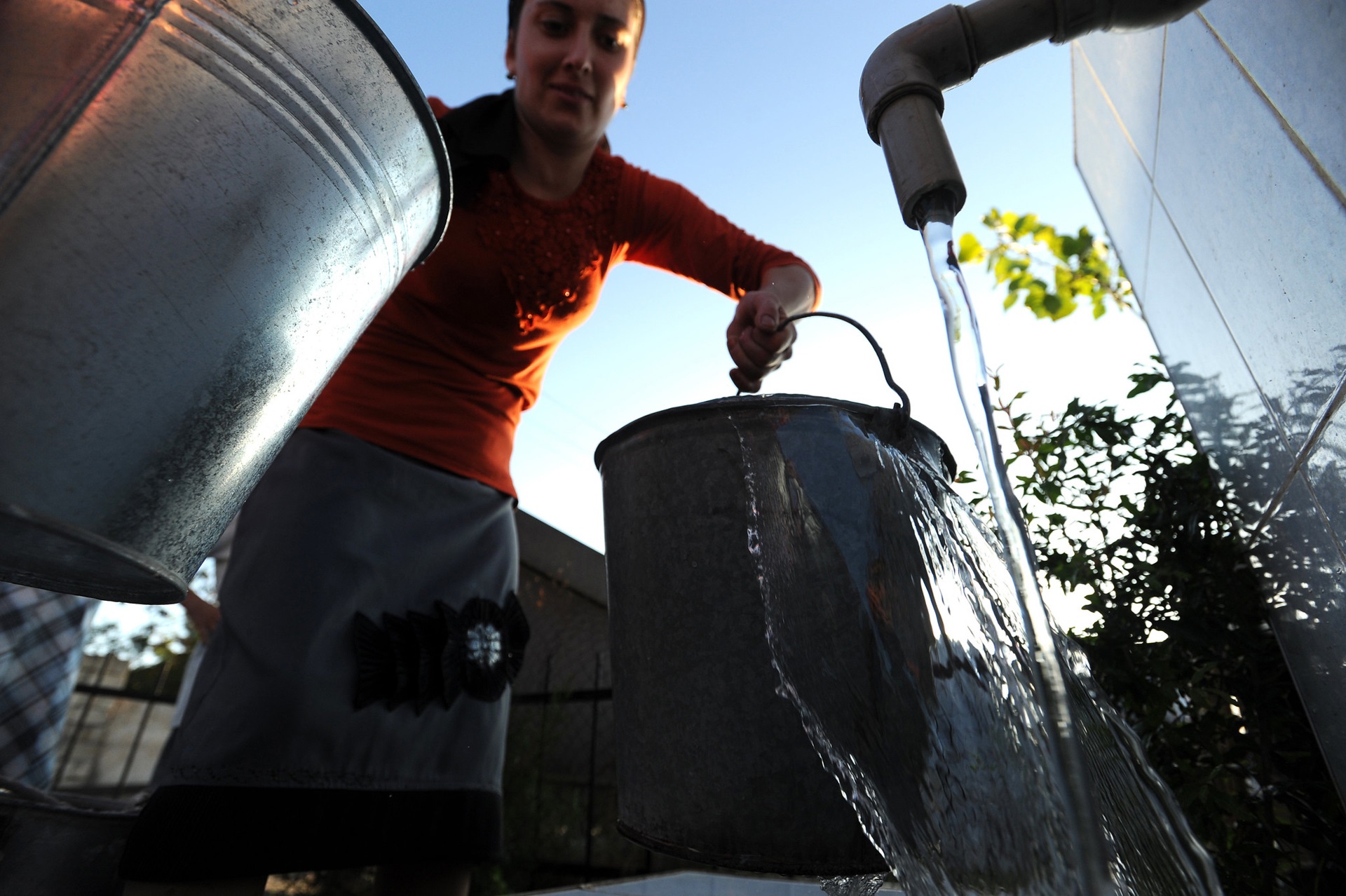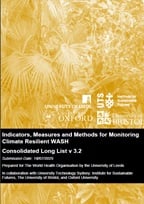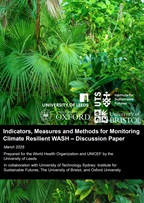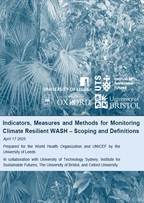JMP/GLAAS review of indicators for global monitoring of climate-resilient WASH

Climate-related hazards, shocks and stresses present a growing threat to drinking water, sanitation and hygiene (WASH) services. In response, WHO and UNICEF have launched a review to identify indicators for enhanced national and global monitoring of climate-resilient WASH. The results will inform future global monitoring by the WHO/UNICEF Joint Monitoring Programme for Water Supply, Sanitation and Hygiene (JMP) and the UN-Water Global Analysis and Assessment of Sanitation and Drinking Water (GLAAS).
During 2024 and 2025, JMP and GLAAS will collaborate with the University of Leeds, University of Technology Sydney, University of Bristol and Oxford University and convene a technical working group to a) review emerging frameworks, tools and indicators, and b) recommend a short list of priority indicators for progressive integration into national monitoring systems. WHO and UNICEF will convene stakeholders at each stage of the process to solicit feedback on the findings and recommendations of the review.
For more information, please contact washmonitoring@who.int. Sign up to receive information and updates about the project.
Consolidated long list of potential indicators
After the public consultation on the long list of potential indicators, the list has been revised into a consolidated long list of potential indicators. The Technical Working Group is currently working to prioritize the indicators and another public consultation on a shorter list will take place later in 2025.

Indicators, measures and methods for monitoring climate resilient WASH - Consolidated...
Public consultation on the long list of potential indicators
GLAAS and JMP are please to launch a public consultation on the long list of potential indicators to monitor climate-resilient WASH. The long list of indicators was developed by the University of Leeds, University of Technology Sydney, University of Bristol and Oxford University based on reviews to assess the quality of evidence for links between key attributes of WASH and climate resilience and how climate resilience is measured in other adjacent sectors.
This public consultation will take place from 23 April to 9 May 2025. There are three ways to participate in the consultation:
- Review the long list of indicators in either Excel or PowerPoint and fill out this survey
- Review the long list of indicators in PowerPoint in presentation mode and use the survey links in the presentation to comment on specific indicators
- Send any feedback on the long list to washmonitoring@who.int
More information about the reviews and long list of indicators can be found in Indicators, measures and methods for monitoring climate-resilient WASH: discussion paper and in Indicators, measures and methods for monitoring climate-resilient WASH: scoping and definitions. If you have any questions, please write to washmonitoring@who.int. We look forward to receiving your feedback!
Long list of potential indicators (Excel)
Long list of potential indicators (PowerPoint)
Webinar about the public consultation
Documents
Review protocols


Indicators, measures and methods for monitoring climate resilient WASH: scoping and...
Webinars and conference sessions
- Monitoring climate-resilient WASH: A review of evidence. A joint WHO/UNICEF webinar
12 February 2025 3-4:30 pm CET
13 February 2025 9-10:30 am CET
Webinar slides for Monitoring climate-resilient WASH: A review of evidence
- Climate resilient WASH: towards a common definition and global metrics. Stockholm World Water Week side event, 26 August 2024
- Monitoring climate-resilient WASH. A joint WHO/UNICEF webinar
Technical working group members
The JMP and GLAAS teams have established a Technical Working Group to provide technical feedback on key findings from each stage of the review, from 2024 through 2026. For details of the Technical Working Group activities, see these Terms of Reference.
